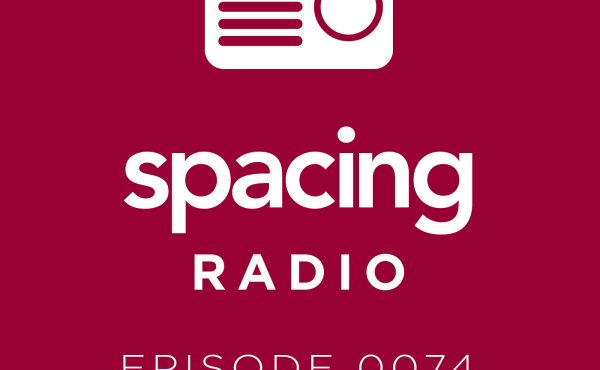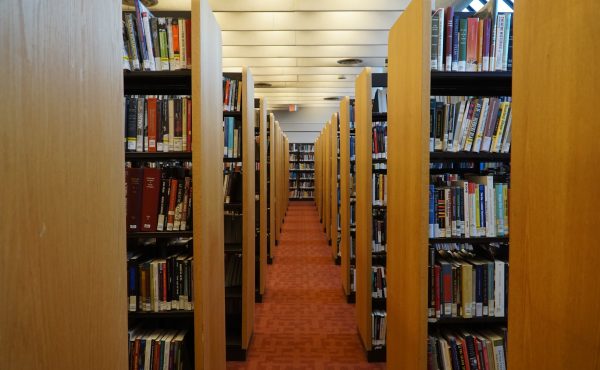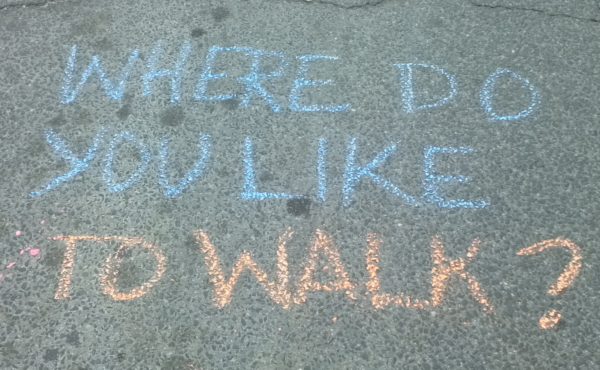This series features highlights from the ongoing exhibit The Fourth Wall: Transforming City Hall. The exhibit, on now at the Urbanspace Gallery, considers possible avenues to break down the barriers to participation in civic life that exist at Toronto’s City Hall.
![]()
On Tuesday, I covered the city’s planning application notices and some ideas about how they could be improved to better engage the public in decision making. Let’s say you have an above average tolerance for poor design and your interest in a particular issue is piqued by one of these notices. A whole slew of barriers may still prevent you from making your voice heard.
Scheduling
Most public consultations at City Hall and our Civic Centres are held during the daytime. During the 9-5 hours, most individuals are working and unable to step out for a public meeting. Even if you are free, it’s tough to know when your particular issue will come up as the timing of each item is not announced. If you don’t have the luxury to wait around all day, it’s likely that you’ll miss your chance to speak. This leads to a bias in public comments as private companies can afford to have lobbyists wait all day, but residents usually cannot. In the past year, we’ve also seen the introduction of ‘24-hour meetings’ which discourage participation by forcing deputants to attend meetings into the night.
Last Minute Tricks
The City Clerk’s Toronto Meeting Management Information System website makes lots of meeting information, including agendas, accessible to the public, but there is little to stop Councillors from engaging in last minute tricks.
In the past year, we’ve seen Councillors introduce controversial items at the last minute, depriving both their colleagues and citizens of relevant information in advance. This is done intentionally to avoid scrutiny, debate and public feedback.
Timing
So you’ve managed to leave work, call a sitter and stay up into the wee hours for your chance to speak. Beware of shrinking deputation times. Over the past year, we’ve seen the time allotment for budget deputations shrink from 5 minutes, to 3, and then 2. Good thing you’ve had all day waiting around to practice!
If we want to boost participation in public meetings, we should explore accessibility options including evening meetings (6-9PM), timed items with clear schedules, on site childcare, refreshments, better promotion of meetings, and plain language materials including translations for Toronto’s diverse communities.
What would make it easier or more enticing for you to attend a public meeting? Have your ever been prevented from speaking because of scheduling or other accessibility issues?
The Fourth Wall: Transforming City Hall is on at the Urbanspace Gallery (401 Richmond St. W.) until the end of the year. The building is open weekdays, 7am to 7pm, and Saturdays, 9am to 6pm. Curated by Dave Meslin, Research by Hilary Best, Design by Adam Zinzan-Harris.
Image from The Grid





3 comments
While I’m not a formal city planner, I know enough of them through my profession, and have attended enough city planning meetings (albeit in other cities than Toronto where my profession has taken me) that I think I can offer some insight from a planner’s perspective.
The first is scheduling. While attending a public consultation is something that the interested public does on its own free time, it is work time for planners. I think most people would detest giving up half their evening to work overtime, and planners are no exception to this. Asking planners to adjust their work schedules so that they can work late also risks losing valuable meeting time with businesses and organizations that work normal business hours. The solution is to hire more planners whose job might be dedicated to these sorts of events. This is, of course, constrained by the planning budget in pretty much every city.
The second is the arduous task of making secondary, non-technical documents. In a perfect world, every technical document that’s used by planners and professionals would be supplemented by an easy-to-read document printed in several languages, but that’s both expensive and very labour intensive. Unless planning departments get more money to hire more staff or to pay for an outside company to do this, I think you’ll just add more workload to already overworked planning departments.
The third – and this is not something we can change easily – is the technical competency of the general public. Let’s face it: the city and its processes is an incredibly complex social system full of unknowns and trade-offs. There comes a point where simplifying a plan to allow a lay person to “understand” what’s going on risks losing a lot of the substance behind the plan. When that happens, why involve the public at all? You will just be giving them misinformation, cleverly disguised, and you may even be able to cunningly spin the contents (if you dumb it down enough, you can pretty much pull anything off) so that the public supports the decision you want. When that happens, you’ve actually subjugated democracy in a supposedly democratic process. How devious! I am all for greater transparency, but part of that bargain has to involve the public becoming more educated and competent in how cities work. The onus can’t entirely be on planners, bureaucrats and decision makers.
Leonard and the author need to be corrected. Although it’s true that most Council or Committee meetings take place during the day ( or at least start during the day) many other meetings by divisions throughout the City hold their meetings almost exclusively on evenings or during the weekend. This includes the meetings run by City Planning and by the Public Consultation Unit for Toronto Water, Solid Waste Management and Transportation. Together this adds up to several hundred events held during hours when most of the public is available.
The public should be taking responsibility for their awareness, but the proponent should take responsibility for making their issue accessible and open to dialogue. Do you think that everyone has time to consider City issues, when in their own lives and careers they are pulled in multiple directions. The proponent should take the time to tell the public why they should come to a consultation. Yes the City is complex, but some good marketing will make a difference in attracting more people to consultations. Don’t dismiss the public like Leonard. Openness, transparency and a little promotional activity will make the difference.
Bruce,
I’m not dismissing the public. In fact, you and I are roughly on the same page: both planners and the public have to be better prepared and give in a little in order for public consultations to work. The difference is that I believe that the public should give in a little more to the planners, while you think that the planners should give in a little more to the public.
What leads me to tip the scales in favour of the planners is that I think that planning is a highly complex exercise where the best outcomes come from people who are highly knowledgeable (especially if they come from different backgrounds and have different ways of thinking) engaging with one another in dialogue. Some of the best planning outcomes, for example, came from planners engaging with groups of people who were part of advocacy organizations. These were people who knew the policies, knew the rules, knew how to read a technical document and could make very educated guesses on how the proposed changes would affect the people they were advocating for. This doesn’t mean that they were all “working for the man” – many of them were advocating on behalf of groups in our society that our marginalized: Aboriginals, the disabled, low income people, etc.
On the other hand, if you invite an uneducated public to engage in a planning exercise, the planners have to spend half the time explaining what is going on, how it is important, and why the public should care. This, of course, is an opportunity for the people in charge to twist the information to suit their ends. If the public is ignorant, who will notice?
Like I said, I believe in transparency and public engagement, but the public MUST be educated about the issues and have a thorough understanding of what the plan involves beforehand. It is not the job of planners to educate the public because the planners may inadvertently inflict bias in favour of their side.